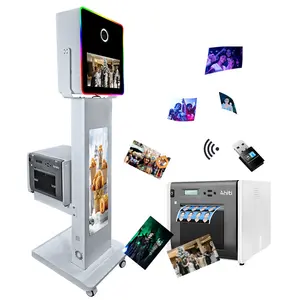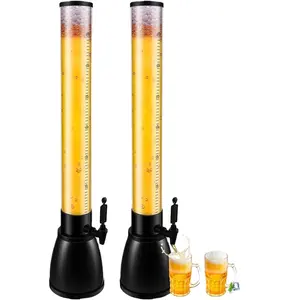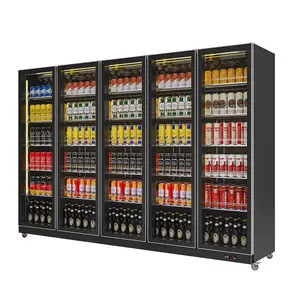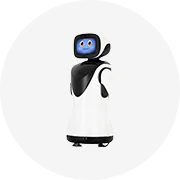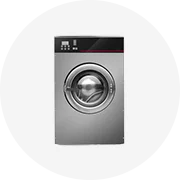





코니카 미놀타 MPC3503/5503/6003 OPC 드럼 호환 장수 복사기 OPC 드럼 공장 가격 OPC 드럼
배송 준비 완료
₩11,939 - ₩13,605
최소 주문량: 1 개
조각 당 선박: ₩9,857





200 리터 플라스틱 드럼 밀어남 중공 성형 기계 55 갤런 파란 드럼 자동 만들기
₩388,700,497 - ₩416,464,818
최소 주문량: 1 세트
조각 당 선박: ₩219,144







샤프스용 MX60 OPC 드럼 C3121 C2621 C3081 C4081 C5081 C6081 복사기 드럼
배송 준비 완료
₩13,883
최소 주문량: 1 개
조각 당 선박: ₩26,696










도매 고품질 MPC 2500 2800 3000 3500 4500 4000 5000 3001 ricoh
₩24,294 - ₩26,238
최소 주문량: 10 개
조각 당 선박: ₩13,508




복사기 수리 프린터 부품 MPC 2500 Ricoh MPC2500 MPC1600 MPC2000 2800 3000 3001 3002 장수명 오리지널 컬러 OPC
₩20,824 - ₩31,929
최소 주문량: 10 개





Ricoh Aficio MPC 2000 2500 2800 3000 3300 5000 3500 4500 3002 Katun Opc 드럼
배송 준비 완료
₩29,153 - ₩34,706
최소 주문량: 1 개
조각 당 선박: ₩22,323

RICOH MPC6502 OPC 드럼 MPC8002 PRO C651 C751 C5100 PRO C5110 후지 OPC 드럼 MPC 8002 충전 롤러 드럼 청소 블레이드
₩41,647 - ₩55,529
최소 주문량: 5 세트




리코 MPC3003 MPC3503 MPC4503 MPC5503 MPC6003 프린터 용 MJL MPC 3003 OPC 드럼
₩36,164
최소 주문량: 1 개
조각 당 선박: ₩45,798






Ricoh Aficio SPC 435 를 위한 좋은 품질 장수 OPC 드럼 440 430 431 401 MPC 300 400 드럼 OPC 일본 복사기
₩13,883 - ₩16,659
최소 주문량: 5 개
조각 당 선박: ₩55,529






프리미엄 품질 호환 OPC 드럼 리코 프로 C651 651 751 C751 5100 5110 C5100s C5110s MPC 6502 8002 OPC 드럼 실린더
₩39,981 - ₩41,369
최소 주문량: 10 개






리코 아피시오 MPC 2011 2003 MPC2003 MPC2011 MPC2503 MPC2004 MPC 2504 MP C2003 C2503 C2004 C2504
₩37,482
최소 주문량: 1 개
조각 당 선박: ₩16,965






호환성 장수 복사기 OPC 드럼 Ricoh MPC 2500 3500 4500 5000 MPC2500 MPC3500 MPC4500 MPC5000 MP C5000 OPC 드럼
배송 준비 완료
₩26,377
최소 주문량: 2 개
조각 당 선박: ₩7,372




복사기 수리 프린터 부품 MPC 2500 OPC 드럼 리코 MPC2500 MPC1600 MPC2000 2800 3000 3001 3002 긴 수명 원래 색상 OPC
₩12,494 - ₩20,824
최소 주문량: 10 개











긴 Ricoh Aficio MPC 2000 2500 2800 3000 3001 3300 3500 3501 4000 4500 4501 5000 5501 SPC810 spc811 spc820
₩16,590 - ₩19,422
최소 주문량: 1 개
조각 당 선박: ₩20,352










리코 MPC2500 MPC1600 MPC2000 2800 3000 3001 3002 대 한 고품질 긴 수명 MPC 2500 OPC 드럼
₩12,494 - ₩20,824
최소 주문량: 10 개






호환 장수 복사기 광학 드럼 리코 Mpc 2500 3500 4500 5000 Mpc2500 Mpc3500 Mpc4500 Mpc5000 Mp C5000 Oc 드럼
배송 준비 완료
₩12,494 - ₩13,883
최소 주문량: 1 개
조각 당 선박: ₩17,270












공장 직접 판매 호환 리코 MPC6502 opc 드럼 리코 MP C6502 C8002 C651 C751 C5100 C5110 복사기 opc 드럼 MPC 6502
배송 준비 완료
₩79,823 - ₩81,211
최소 주문량: 1 개
조각 당 선박: ₩30,541




리코 프로 C651 651 751 C751 5100 5110 C5100s C5110s MPC 6502 8002 OPC 드럼에 대한 TMS 하이 퀄리티 OPC 드럼
배송 준비 완료
₩62,470 - ₩70,800
최소 주문량: 1 개
조각 당 선박: ₩6,719






QHJ 오래 지속되는 호환 RICOH OPC 드럼 MPC C3003 3503 4503 5503 6003 3004 3504 4504 5504 6004 D186-2218 OPC 드럼
배송 준비 완료
₩7,636 - ₩10,412
최소 주문량: 1 세트
조각 당 선박: ₩8,302






프리미엄 OPC 드럼 Ricoh Pro C651 651 751 C751 5100 5110 C5100s C5110s MPC 6502 8002
₩40,259 - ₩41,647
최소 주문량: 1 개







도매 오랫동안 Ricoh MPC2500/2800/3300 MPC4000/5000/3500/4500
배송 준비 완료
₩30,541 - ₩41,647
최소 주문량: 10 개
조각 당 선박: ₩6,247






Ricoh MPC 2003 3003 3503 4503 5503 6003 MPC2003 MPC3503 MPC4503 MPC4504 MPC6003 MPC5503 포토 컨덕터 유닛에 대한 Aficio 드럼
₩76,352 - ₩166,586
최소 주문량: 16 개








긴 수명, 고품질, OPC 드럼, MPC2050 2010 2530 2550 2051 2551 2030, 중국 제조 업체
배송 준비 완료
₩4,443 - ₩5,553
최소 주문량: 20 개
조각 당 선박: ₩12,467
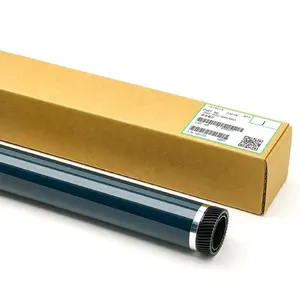





RICOH MPC C 3003 3503 4503 5503 6003 3004 3504 4504 5504 6004 OPC 드럼 드럼 D186-2218 D186-2248 D186-2238 D186-2208 D149-2250
₩8,052 - ₩11,106
최소 주문량: 1 박스
조각 당 선박: ₩12,050


MPC6000 OPC 드럼, D014-9510/D0149510, 리코 Aficio MP C6000 C6000 C7000 C7500 C7501 C6000SP,E 스튜디오 4500C, 프로 C550EX C700EX
배송 준비 완료
₩49,976 - ₩52,753
최소 주문량: 2 개
조각 당 선박: ₩20,990






FULUXIANG 호환 MPC2003 OPC 드럼 리코 Aficio MPC2003 MPC2004 MPC2011 MPC2503 MPC2504 예비 부품
₩10,829 - ₩12,494
최소 주문량: 1 개



RICOH MPC 8002 를 위한 일본 FUJI Opc 드럼 MPC8002 5100S 6502sp 직업적인 751 651 복사기는 장수 Opc 드럼 녹색을 분해합니다
₩65,080 - ₩73,132
최소 주문량: 1 개
mpc 드럼 정보
Alibaba.com은 835 mpc 드럼 상품을 제공합니다. 다양한 mpc 드럼 옵션을 선택할 수 있습니다. 예: konica minolta, 캐논, ricoh. 호환, 원래 mpc 드럼 등을 선택할 수 있습니다.
